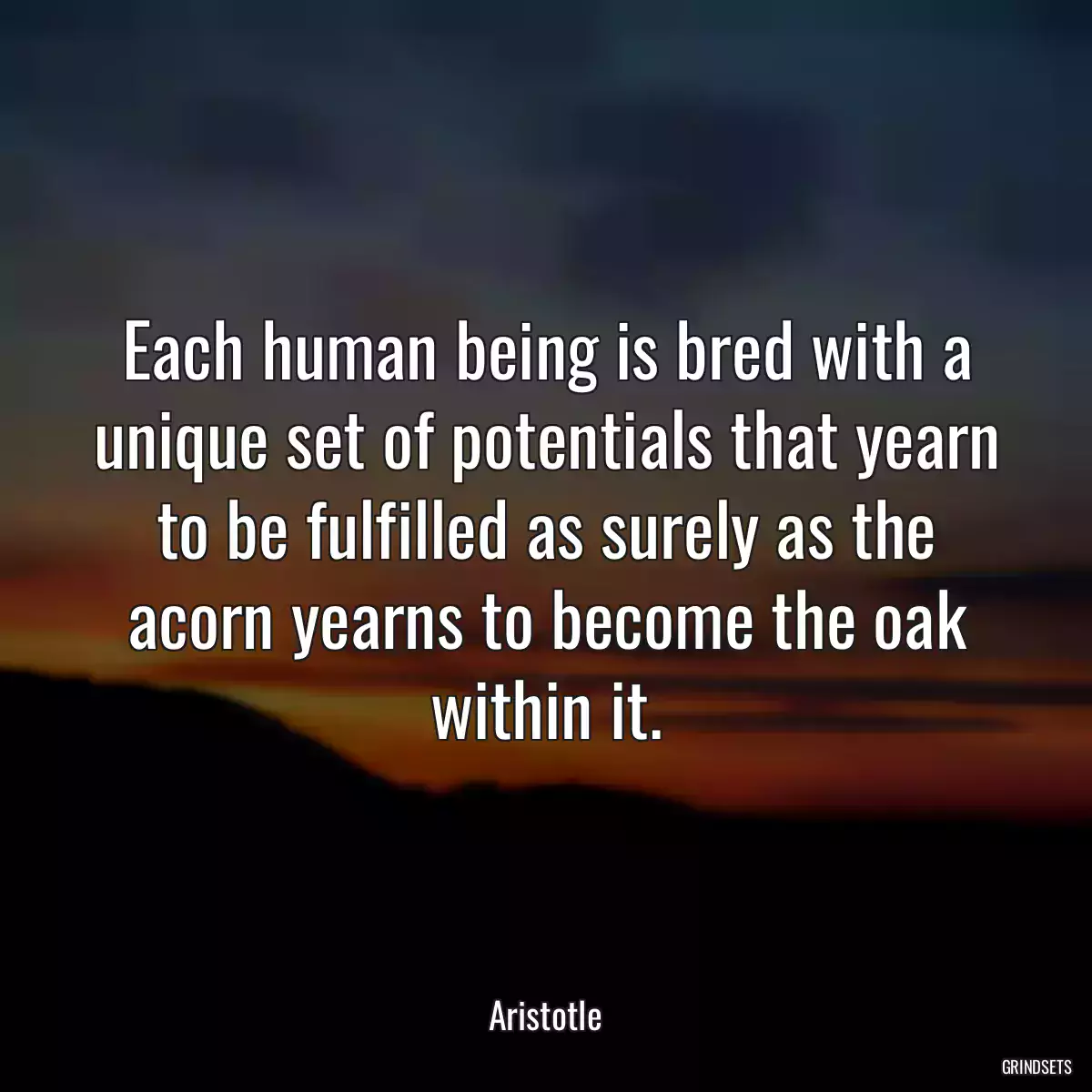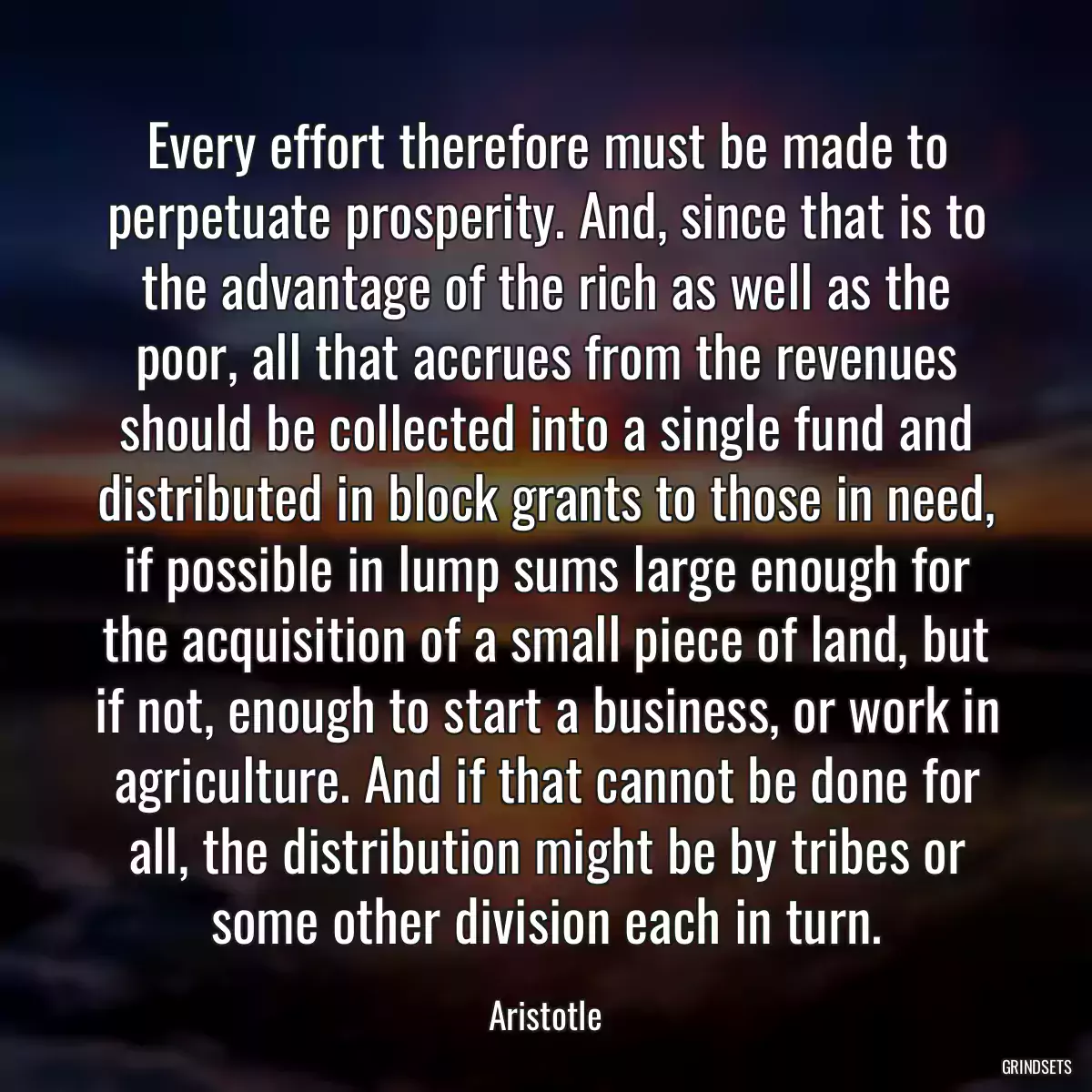
Quotes Aristotle - page 8
Find dozens of Aristotle with images to copy and share.

The gods too are fond of a joke.
For imitation is natural to man from his infancy. Man differs from other animals particularly in this, that he is imitative, and acquires his rudiments of knowledge in this way; besides, the delight in it is universal.
If a man of good natural disposition acquires Intelligence [as a whole], then he excels in conduct, and the disposition which previously only resembled Virtue, will now be Virtue in the true sense. Hence just as with the faculty of forming opinions [the calculative faculty] there are two qualities, Cleverness and Prudence, so also in the moral part of the soul there are two qualities, natural virtue and true Virtue; and true Virtue cannot exist without Prudence.
You may also like
It will contribute towards one's object, who wishes to acquire a facility in the gaining of knowledge, to doubt judiciously.
Men acquire a particular quality by constantly acting in a particular way.
It is easy to perform a good action, but not easy to acquire a settled habit of performing such actions.
The art of wealth-getting which consists in household management, on the one hand, has a limit; the unlimited acquisition of wealth is not its business. And therefore, in one point of view, all riches must have a limit; nevertheless, as a matter of fact, we find the opposite to be the case; for all getters of wealth increase their hard coin without limit.
Now property is part of a household, and the acquisition of property part of household-management; for neither life itself nor the good life is possible without a certain minimum supply of the necessities.

Every effort therefore must be made to perpetuate prosperity. And, since that is to the advantage of the rich as well as the poor, all that accrues from the revenues should be collected into a single fund and distributed in block grants to those in need, if possible in lump sums large enough for the acquisition of a small piece of land, but if not, enough to start a business, or work in agriculture. And if that cannot be done for all, the distribution might be by tribes or some other division each in turn.
We assume therefore that moral virtue is the quality of acting in the best way in relation to pleasures and pains, and that vice is the opposite.
The ultimate end...is not knowledge, but action. To be half right on time may be more important than to obtain the whole truth too late.
But obviously a state which becomes progressively more and more of a unity will cease to be a state at all. Plurality of numbers is natural in a state; and the farther it moves away from plurality towards unity, the less of a state it becomes and the more a household, and the household in turn an individual.
The sun, moving as it does, sets up processes of change and becoming and decay, and by its agency the finest and sweetest water is every day carried up and is dissolved into vapour and rises to the upper region, where it is condensed again by the cold and so returns to the earth. This, as we have said before, is the regular course of nature.
A speaker who is attempting to move people to thought or action must concern himself with Pathos.
It is clear, then, that the earth must be at the centre and immovable, not only for the reasons already given, but also because heavy bodies forcibly thrown quite straight upward return to the point from which they started, even if they are thrown to an infinite distance. From these considerations then it is clear that the earth does not move and does not lie elsewhere than at the centre.
You'll understand what life is if you think about the act of dying. When I die, how will I be different from the way I am right now? In the first moments after death, my body will be scarcely different in physical terms than it was in the last seconds of life, but I will no longer move, no longer sense, nor speak, nor feel, nor care. It's these things that are life. At that moment, the psyche takes flight in the last breath.
We do not act rightly because we have virtue or excellence. But they hesitate, waiting for the other fellow to make the first move-and he, in turn, waits for you.
You may also like

The same thing may have all the kinds of causes, e.g. the moving cause of a house is the art or the builder, the final cause is the function it fulfils, the matter is earth and stones, and the form is the definitory formula.